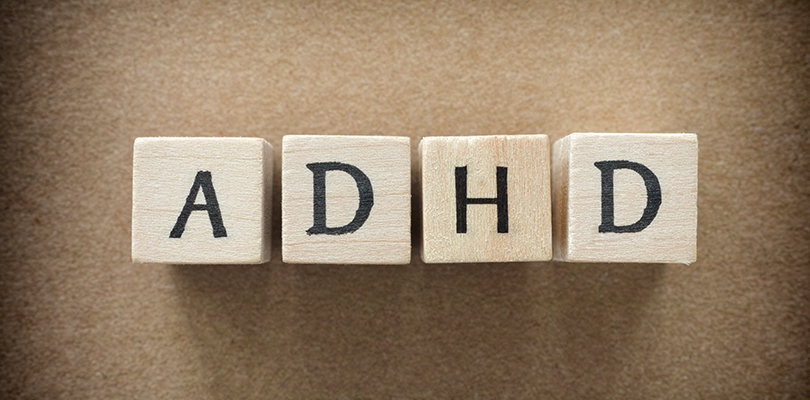Photo Credit: KatarzynaBialasiewicz / istockphoto.com
Support for ADHD
Whenever you are facing a challenge, you need a box full of tools. The tools will change depending on the job, of course, but one element will be present no matter what the task is: supports.
If ADHD is your challenge, support is a must. ADHD is a major mental health concern that can greatly impact your life and the lives of others around you. It deserves a certain level of time and attention paid to it.
Some days your symptoms will be under control while other days they will seem completely overwhelming. Believe it or not, supports are equally important no matter what kind of day you’re having.
Tear Down the Wall
Before too much is said about the benefits of supports, you need to look at your willingness to accept supports in your life. People are often hesitant about accepting help, especially when it comes to matters related to mental health.
Sadly, there is still a stigma surrounding psychological conditions, and the most unfortunate part is that people with the mental health issues can stigmatize themselves. Have you ever found yourself second-guessing your decision to tell people about you ADHD? Do you keep that information reserved for a select few?
If you leave out parts of your life to the people you interact with, you are reducing their ability to truly provide assistance when needed. You are reducing their ability to know you. Most importantly, you are reducing your own acceptance of your situation. How can they help when they don’t know all of the factors feeding the problem?
A lot of people dealing with an issue like ADHD will say, “I don’t need any help. I can handle this myself.” Okay, but consider this: just because you can do something by yourself, doesn’t mean you should. You can move a ton of rocks from one side of a field to another side, but it is usually easier – and more fun – with someone’s help.
Being open to the idea of various types of support is the most important factor for adding these positives into your life.
Bring in the Supports
A support is anything that helps you or makes your life easier. Supports come in different shapes and sizes. People are the primary source of support for other people, but supports can also be places and things.
Face-to-face relationships will be the most beneficial, but also the most demanding to maintain. Push yourself to have the best supports – not just the convenient ones. With ADHD, you should work to be open and accepting of any and all supports that come your way.
To understand how supports can help you, begin by taking a look at your symptoms. Do you have periods of poor attention? Are you so hyperactive at times that you cannot get anything done? Do you engage in so many time-wasters that you cannot finish your work?
Right now, you might be having trouble even identifying your ADHD symptoms because your self-awareness is so poor. This is a common problem with ADHD, because you are so distracted by the outside world it is hard to pay attention to you. This brings you to the first benefit of supports. Your supports can know you better than you know yourself.
People are notoriously poor at objectively looking at the situations they are in. This makes sense because you are only seeing, feeling and experiencing your own point of view. Any mental health issue, like ADHD, changes and distorts your perspective. Listening to and trusting the supports in your life will deliver another perspective. They might not always be right, but they can give you another piece of the puzzle. This view will yield useful information that you can use to your advantage.
People with ADHD have much to teach the rest of us. While it may not seem like it at first, there are some positive aspects of ADHD.
Along the same lines, having supports allows you the opportunity to get useful feedback about the best course of action for your situation. Everyone has problems, and whether they are big or small, they are stressful. When you find yourself faced with a new problem, you may feel stuck or unsure about how to proceed. This is where supports come in to help.
Have you ever heard the saying “Two heads are better than one?” If you have 10 solid supports, 10 heads are better than one. Let them confer with each other to establish the best plan to improve your attention, activity level or disorganization. Since supports in your life can be professional or personal relationships, having a therapist as a support can really end with good results. When you resist the urge to second-guess or dispute your supports, you put yourself in a better position to gain from their feedback.
Even if your supports are not good at objectively assessing the current situation or providing useful feedback, they will remind you that you are not alone. Loneliness and self-doubt tend to run rampant during periods of high stress, especially the stress related to mental health issues like ADHD.
Without supports, people begin to feel increasingly confused and frustrated. Even if your supports cannot solve your problems, they can remind you that problems are a normal part of life for everyone. Having a support as a sounding board to your frustrations makes the frustrations more manageable. With any luck, one of your supports will be someone that has had the same ADHD-related struggles you do. Their experience will be invaluable.
Once you start to appreciate the importance of people as supports in your life, you can begin diversify to places and things. A wide range of items and locations can be tremendous supports to someone with ADHD. The key factor here is telling the difference between something that is a support and something used to avoid or escape from your problems. In most cases, the distinction is based on time.
When it comes to ADHD, the prime example is a video game. On some levels, video games can be a welcome support due to their ability to temporarily distract you from stress and engage you in a fantasy world. With the advancements in technology, video games systems can connect you to friends across the world. The downside is that video games provide someone with ADHD the high levels of stimulation they desire. This makes it harder to turn off the system and tend to other facets of life that require attention.
A smart phone can be a great support because it allows access to information and important people in your life. Apps are available to keep you organized and on schedule. With phones, the drawback is the availability of games, apps and websites that distract you from the crucial matters at hand. It is up to you to use your devices appropriately rather than excessively. To know the difference, work to understand your trends and the reactions of others in your life. If your trusted supports think you are spending too much time with things, follow their recommendations. They are probably right.
Don’t Wait for Tough Times
People often don’t lean on supports until times are tough and stress is high. Surely, this is an opportune time to do so, but this approach only focuses on damage control. Damage control puts all energies on making bad times less bad.
But supports are equally helpful in making good times even better and can help prevent the bad times. Store away all of the positive advice, information and experiences you have with your supports like making a deposit in a bank. If you have made enough deposits, you can handle the withdrawal that stress and ADHD take from your account without going bankrupt. Have fun with your supports. Store a solid level of happiness and it will serve as your cushion next time you fall.
Supports do much more than you could ever imagine. As long as you are willing to accept supports into your life, follow their feedback and moderate their time, you will be doing much better with supports than without supports.
What other benefits do you gain from your supports? How do they fulfill your life?







